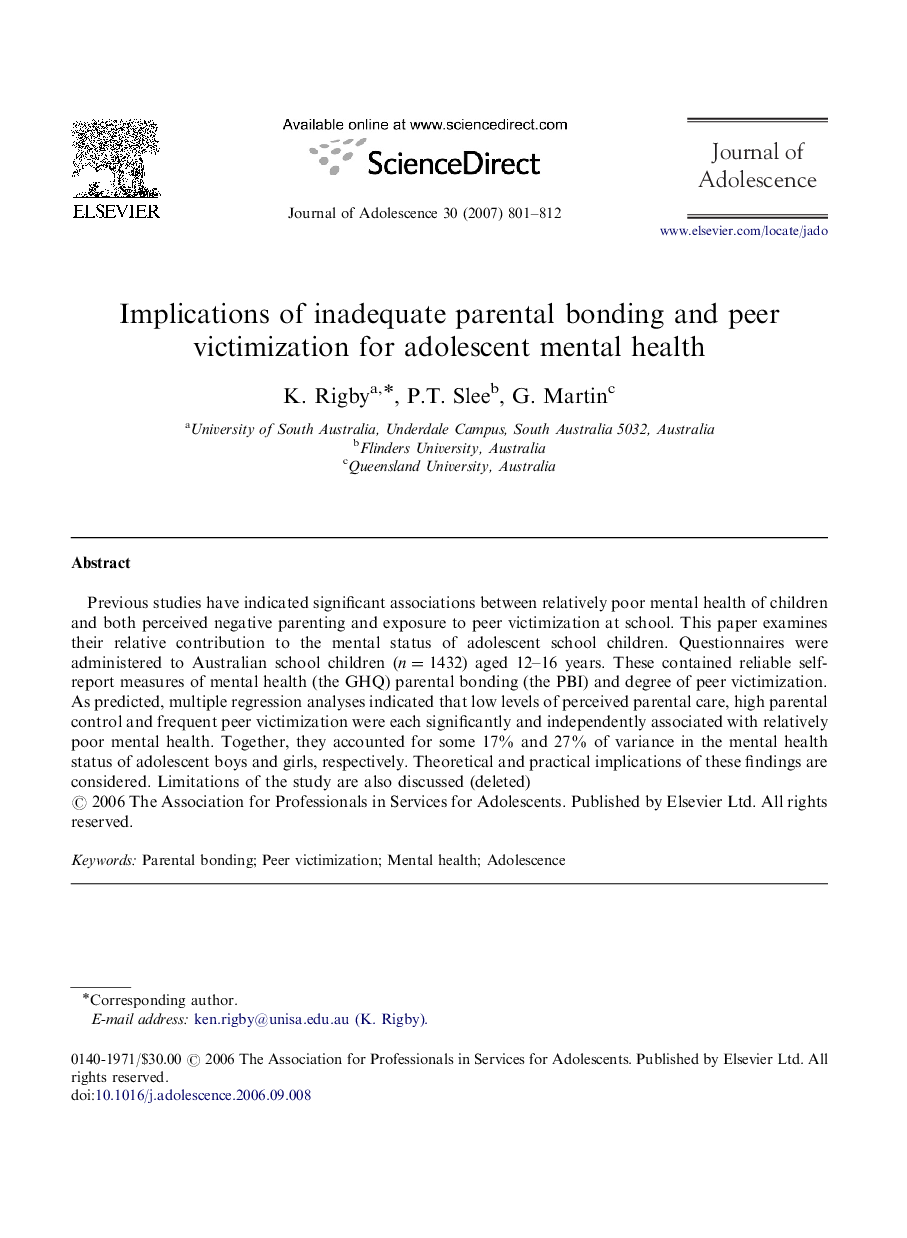| Article ID | Journal | Published Year | Pages | File Type |
|---|---|---|---|---|
| 881398 | Journal of Adolescence | 2007 | 12 Pages |
Previous studies have indicated significant associations between relatively poor mental health of children and both perceived negative parenting and exposure to peer victimization at school. This paper examines their relative contribution to the mental status of adolescent school children. Questionnaires were administered to Australian school children (n=1432n=1432) aged 12–16 years. These contained reliable self-report measures of mental health (the GHQ) parental bonding (the PBI) and degree of peer victimization. As predicted, multiple regression analyses indicated that low levels of perceived parental care, high parental control and frequent peer victimization were each significantly and independently associated with relatively poor mental health. Together, they accounted for some 17% and 27% of variance in the mental health status of adolescent boys and girls, respectively. Theoretical and practical implications of these findings are considered. Limitations of the study are also discussed (deleted)
